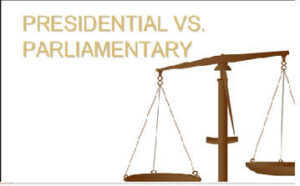Introduction
The very essence of law and order is to prescribe a punishment befitting the crime, a concept that has stirred contentious debate when it comes to the gravest of crimes: murder. Capital punishment, the legal authorization to end the life of a person as a penalty for a crime, stands at the pinnacle of such debates. Across the globe, nations are divided, with some upholding the death penalty as the ultimate deterrent, while others have renounced it as a relic of a less enlightened past. This discourse aims to dissect the layers of this complex issue, evaluating its efficacy, morality, and societal impact.
Historical Context
The use of capital punishment is as ancient as civilization itself, with recorded instances dating back to the Code of Hammurabi in ancient Babylon. It was employed as the ultimate retribution for the most heinous crimes, often without the safeguards of modern legal procedure. Over the centuries, societal perceptions have evolved. In the 18th century, philosopher Cesare Beccaria’s seminal work, “On Crimes and Punishments,” challenged the rationale of the death penalty, igniting a discourse that would ripple through the ages. Today, we grapple with historical data that swings the pendulum of public opinion on whether the death penalty truly serves as a deterrent. It raises a critical question: does the irreversible nature of the death penalty justify its use, and can we correlate its existence with a decrease in murder rates?
Ethical Considerations
Ethics lie at the heart of the capital punishment debate. Advocates often invoke the principle of retributive justice—the belief that the gravity of murder warrants a commensurate response. This perspective is encapsulated in the lex talionis, an ‘eye for an eye’ doctrine rooted in ancient law, suggesting that only an equal measure of punishment can indeed balance the scales of justice. However, this stands in stark contrast to ethical frameworks that hold all life as sacrosanct, challenging the moral rectitude of state-sanctioned executions. Especially troubling is the specter of wrongful convictions, a stark reality in judicial history that continues to cast a long shadow on the death penalty’s ethical standing.
Legal Aspects
Constitutionally, the death penalty raises numerous concerns, particularly within the realm of the Eighth Amendment of the U.S. Constitution, which prohibits cruel and unusual punishment. The legal journey of capital punishment in the United States is a testament to this ongoing legal debate, with landmark cases such as Furman v. Georgia and Gregg v. Georgia fundamentally affecting its application. Internationally, the United Nations’ Universal Declaration of Human Rights emphasizes the right to life, and the International Covenant on Civil and Political Rights aims to restrict the use of the death penalty, illustrating the global legal tide turning against capital punishment.
Social and Psychological Dimensions
The ripple effect of a death sentence extends far beyond the individual; it permeates the fabric of society. The death penalty can provoke a climate of vengeance, overshadowing the potential for reform and rehabilitation. For those involved in the process, from jurors to the families of both the victim and the accused, the psychological toll is immeasurable. Can a society focused on punitive justice truly deter future crimes, or does it engender a cycle of violence, perpetuating the very behavior it seeks to eliminate?
Economic Perspective
The financial ramifications of capital punishment are often overshadowed by ethical and legal debates, yet they are crucial. Studies consistently show that the cost of executing a prisoner, considering prolonged legal processes and maintenance of death row facilities, often exceeds the cost of life imprisonment. In a justice system where resources are finite, the economic argument against the death penalty becomes increasingly compelling, particularly when such resources could alternatively be invested in crime prevention and rehabilitation programs.
Case Studies
An examination of the global landscape provides real-world insights into the death penalty’s efficacy and morality. Countries like Canada, which abolished the death penalty, serve as case studies for understanding the long-term effects on murder rates and societal health. Conversely, countries that enforce capital punishment often cite it as a necessary tool for justice and deterrence, despite international criticism. High-profile cases, such as that of the “Boston Marathon Bomber,” Dzhokhar Tsarnaev, bring the death penalty into sharp focus, prompting us to question its role in justice and retribution.
Alternatives to Capital Punishment
Alternatives to the death penalty, such as life imprisonment without parole, offer the possibility of penance and protection to society without crossing the ethical lines that capital punishment does. Restorative justice models emphasize healing over punishment, providing a platform for offenders to make amends. These alternatives highlight a crucial juncture at which society must decide the direction of its criminal justice system—towards irreversible punishment or towards rehabilitation and potential redemption.
Conclusion
As we unpack the layers of capital punishment’s implications for crimes related to murder, it becomes clear that this is not a black-and-white issue. The profound moral, legal, and societal questions it raises demand a nuanced and informed response. It is imperative that we continue to scrutinize the death penalty from every angle, fostering a criminal justice system that embodies our highest values of fairness, justice, and humanity.
Read Also: Human Inventions That Changed the World
📍 English Language Educator | Blogger & Content Strategist | 7+ Years in Educational Blogging
Nosheen Bashir is a dedicated English teacher and experienced blogger with over seven years of expertise in content creation and educational writing. Passionate about language, literature, and effective communication, she combines her teaching experience with blogging skills to create insightful, research-backed content that helps learners and educators alike.
🔹 Expertise & Achievements:
✔ English Language Education: A skilled educator with years of experience in teaching English grammar, literature, and communication skills to students of varying levels.
✔ Educational Blogging: Running a successful blog for 7+ years, delivering well-structured, engaging content on language learning, writing techniques, and academic success.
✔ SEO & Content Strategy: Specializes in creating high-ranking, authoritative articles that follow Google’s EEAT principles, ensuring content that is both informative and search-friendly.
✔ Student-Centric Approach: Committed to making English easier, engaging, and accessible, helping readers and students improve their language proficiency.
🚀 With a passion for teaching and writing, Nosheen Bashir is dedicated to crafting educational content that empowers students, teachers, and language enthusiasts worldwide.











